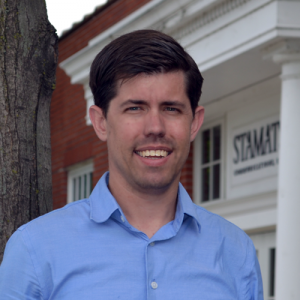Using a Tuition Pricing Study to Drive Enrollment Growth
Aired October 15, 2019
Presented by Patrick Stark, Director, Consulting and Marketing Research, Stamats

This webinar is a high-level overview of how pricing studies [also known as Tuition Pricing Elasticity Studies (TPES)] work. Then, we’ll do a deep dive into how to use pricing study data to help identify your optimal price point and more effectively communicate with students to improve enrollment.
You’ll receive a simple checklist to help you determine whether to invest in a pricing study, plus examples of how clients have used pricing studies to help them make a number of data-driven findings, including:
- How changes in tuition will impact both market share and overall net tuition revenue
- The weight students place on brand value and tuition cost in the college-choice process
- How brand positioning among competitors impacts students’ willingness to pay
- The importance students and parents place on price, as well as other college-choice characteristics
- Brand drivers that students and parents value most
- Reactions to pricing scenarios from specific student segments (gender, ethnicity, academic skill, resident/ non-resident, etc.)
- What is involved in a tuition reset and when it is and is not appropriate
Watch this On Demand Webinar! Register Now!
About the Presenter
 Patrick Stark, Director, Consulting and Market Research, Stamats
Patrick Stark, Director, Consulting and Market Research, Stamats
Patrick has extensive experience using research and survey methods to develop applied, outcome-oriented research. In addition to leading analysis and fieldwork, he helps scope and shape projects. Through collaboration with clients, Patrick ensures that each project is tailored to meet college and university circumstances and needs.
Prior to joining Stamats, Patrick served as an education researcher and survey methodologist at American Institutes for Research, leading and designing projects for federal government agencies including the Department of Education. During this time, he was a key member of many high-profile government projects. Patrick holds an M.A. in sociology from The Catholic University of America and a B.A. in sociology from the University of Wisconsin-Eau Claire.


 Patrick Stark, Director, Consulting and Market Research, Stamats
Patrick Stark, Director, Consulting and Market Research, Stamats